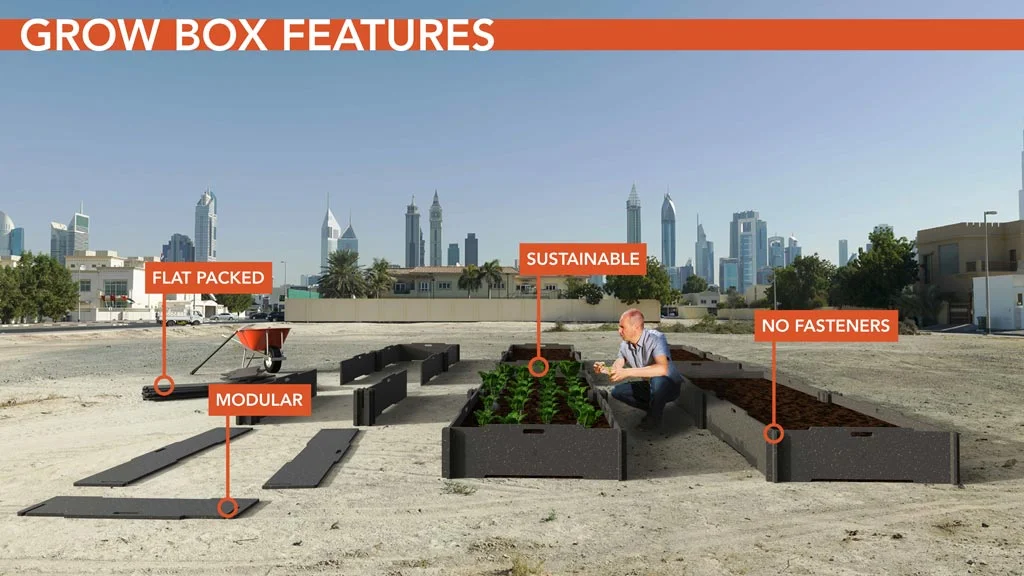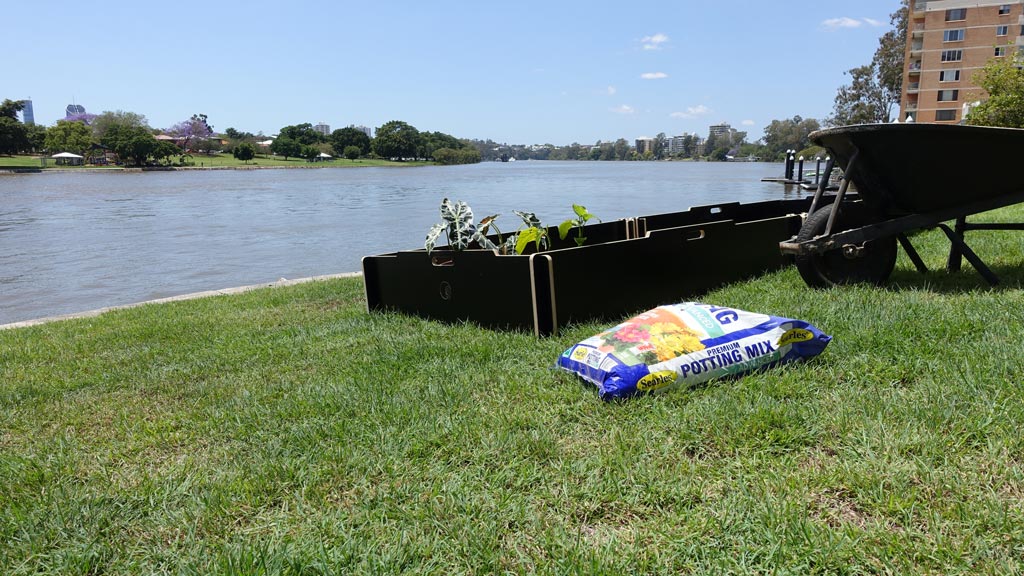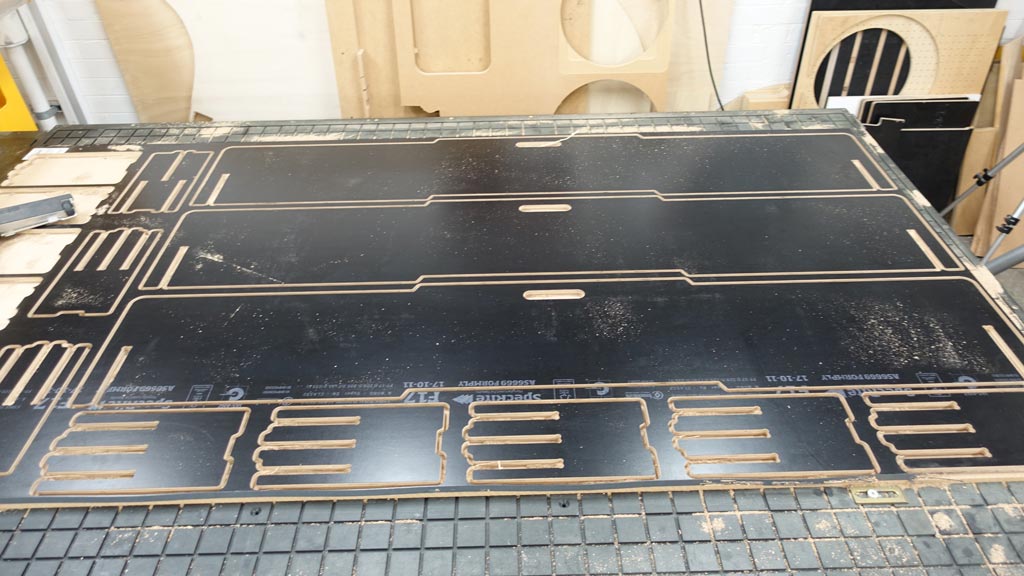Fergus Mckenzie On An Urban Agriculture Concept For More Sustainable Cities
Fergus McKenzie is a graduate Industrial Designer who completed his honours degree in Industrial Design at Queensland University of Technology in 2018.
As a creative and team oriented designer with a passion for sustainably focussed design, his thesis project addressed urban agriculture, and won the 2018 Impact Boom Award at QUT.
His industry experience has given him familiarity with the design process within a context of business and innovation. He offers a confident and enquiring mind while applying design thinking in tackling complex tasks.
His education as a designer has been complemented by a semester exchange spent in The Netherlands at the Technical University Delft, in an immersive studio workshop environment, as a result of which, his work was featured in Dutch Design Week 2018. He also sought industry experience during his degree, completing a six-month internship at BMW in Munich, where he worked in the Virtual Reality and Innovation lab, as well as a six month internship at Derlot Group in Brisbane.
Fergus discusses his thesis project from QUT, which focussed on tackling the destructive nature of our current agricultural systems, shares some interesting Brisbane-based agricultural projects and discusses how to improve design education.
Highlights from the interview (listen to the podcast for full details)
[Tom Allen] - Could you please share a bit about your background in design and what led you to working on the Open Plot project?
[Fergus Mckenzie] - For me, my design journey started at a young age. Growing up in a house that was designed and built by my parents was a big factor early on. We had a large back yard, even in the second house that we moved to. Dad always just had materials and tools lying around in the back yard and in the shed. That opened me to that idea of tinkering from a young age, and always building and creating your own scenarios and toys from scratch. Just the idea of playing outside was more prevalent to me at a young age than inside, but then also another key factor, was when I was playing inside, toys like LEGO and that sort of modularity was introduced to me through those toys.
I guess learning from creating and doing was introduced through playing outside and those experiences like creating and building through LEGO. From there, in primary school, I took art. That was one of my favourite subjects growing up. And then that led me to take art and graphics in high school as well. I think graphics was easily, hands-down, my favourite subject in high school, because it taught you a lot about not just... That was just my first introduction to industrial design. But they taught you a lot about architecture and interior and how to do rendering and that was an introduction to graphic design as well.
After getting taught these core skills through graphics, we had a meeting with our careers supervisor, and I said, "Look, these are my favourite subjects, art and graphics," and she said, "Oh, well have you heard about industrial design at QUT?" I hadn't at that stage and that was my first introduction to industrial design and after looking into it, I knew straightaway that that's what I wanted to study.
And then from there, QUT opened many doors that allowed me to travel and work overseas. Like you just mentioned, I had the opportunity of doing a exchange semester in the Netherlands and also an internship in Germany, which were really eye-opening experiences.
That showed me how different cultures and cities approach different ways of sustainability and that opened my eyes to how much Australia is lagging in many ways of sustainability.
Yeah, it's amazing jumping deep into the Netherlands and other places which really seem to be working in these areas, right? I'm sure it certainly was very eye-opening for you. So tell us a little bit more about Open Plot. What did you learn during your research into this urban agriculture project, and how does the project propose to create more sustainable cities through urban agriculture?
Initially, when I started this thesis project, I had two ideas. The first was urban agriculture and the second was a commercial kitchen, since I was working at the bar that I was working in and I had access to that commercial kitchen. I was talking to a lot to the chefs and I thought maybe there was some kind of solution I could come up with to help their hard lives, but I ended up going with the urban agriculture route and I was really happy with how the Open Plot project turned out.
In the initial, early research stage of Open Plot, some of the more prevalent global issues that we face as humanity popped up. These included population growth, food miles, and just the general destructive nature of our current agricultural systems. There was a big increase as well from people living in rural areas and now moving into urban areas, and with that growth in our urban population comes food security or food insecurity.
We're not going to have enough food to feed all these people that are moving to our cities. A key stat that came from that research for me was that on average, our food will travel 1,600 kilometres to get from farm to table.
Yes, huge.
That really hit home for me, and made me realise, "Why can't we grow more of our food in the city?"
That's where the Open Plot idea was born from. The main aim of the Open Plot project was to create a closed-loop urban food system that benefitted multiple stakeholders within the food supply chain. Through that aim, I created this platform that was aimed at reducing food miles and increasing urban food supplies, whilst making use of unproductive landscapes, such as rooftops or land, for instance, like Hutchinsons, who buys up a big block of land and they're just going to sit on it for a couple years without actually doing anything with that land.
A key case study while I was doing this research, I went and visited three urban farms here in Brisbane. They were Millen Farm Project. That was out at Samford, so that was sort of peri-urban. That was more sort of a village farm-style of growing. Then there was also Northey Street City Farm, which they were doing really cool, community-style farm routes in the city centre there, all Bowen Hills area, so that was very urban. And then there was the Mini Farm Project, which was probably, for me, the most eye-opening. That was a not-for-profit. They were over in Camp Hill and their business model was they were growing on land that they did not own, and everything they grew, they donated to homeless shelters, which I thought was really cool.
That started off the whole project for me when I visited those three farms. That made me realise they were all doing such different things. This needs to happen more and more in Brisbane and Australia, I thought. From there, I created this platform that aimed at connecting unused land with urban farmers who were willing to grow on that land for a certain amount of time. This platform, there was an app that was a central contact point of the system, and then there was the product, which was this modular growing bed, CNC cut out of recycled plastic sheeting. It was easily assembled. No fasteners were required and you could assemble it, disassemble it, and take it to the next local land that you were going to grow on. That was the core basis of the project.
So where's that going to head into the future now, Fergus?
Well, it'll take a lot of municipality getting on board with the regulations around growing food. A lot of those roadblocks, especially while I was visiting and interviewing people at Northey Street City Farm, they said it's going nowhere unless Council gets behind us and starts backing us. That's where I see the first point of contact would be, getting in contact with Council and trying to release some of those roadblocks that are there around growing food in an urban context, and then once that starts freeing up, hopefully try and actually make this app and make it a reality.
So from a design education perspective, how do you believe design education could change, to help students basically get a stronger understanding of some of these social and environmental problems like the one that you've been tackling, as well as forming designers that don't just understand these issues but actually design to counteract them?
I thought the curriculum taught through QUT did a pretty good a job at teaching us the different problems that we face as humanity. We had courses where we did projects that looked into sustainability, homelessness, and disability. I thought that was eye-opening with the curriculum that QUT taught. But I think that education needs to move towards a more integrated project through industry, municipality, and multidisciplinary ways of working.
QUT already did quite a good job of having industry projects where we had real-world partners through those projects, but I definitely think there needs to be a bigger push towards multidisciplinary working.
Just, for instance, when I was in my semester in the Netherlands, that minor I took over there was a multidisciplinary minor so I was working with psychologists, architects, mechanical engineers, computer scientists, and that sort of style of working where you have all these different disciplines is very real-world and I think that it was so strong, that context. You get everyone's point of view from a different background.
I think that's where education should be heading, to show these young designers the importance of the social and environmental problems that we're facing.
Fantastic. So what advice, then, would you give to the design students listening who want to use their careers to generate a better world?
I guess the main piece of advice would be just to test the social norms, because without young students pushing for social and environmental improvement, nothing is ever going to change, especially in an academic setting, where you have more free will and you have that sort of freedom to tackle some of these bigger future problems that often real-world clients won't want to touch. You know what I mean? I think, as a student, you have that freedom where you can have that more blue-sky thinking and really just get stuck into it to promote change.
What inspiring projects or initiatives have you come across recently, then, that you believe have been really effective in creating some positive change?
I watched a documentary recently on a train down in Byron Bay that has been fully retrofitted with solar panels, so the train's actually carbon-positive. It's just an old '80s train, I think, that they've retrofitted. They've put solar panels as well on top of the train station. That train is fully carbon-positive and that solar energy that it's creating is actually getting put back into the grid and it can power something like 12 houses per year, as well as powering that train. Small initiatives like that really catch my eye.
Also, the Climate March that happened recently here in Brisbane, just bringing awareness to our changing planet and environment and how we have to change our ways to stop that or counteract that. Also, on a smaller scale, as I mentioned, I work at a bar here in Brisbane. It's really heartwarming to see small businesses take on a more sustainable approach to the way they do business; this is smaller scale, but it adds up across of the hospitality industry, but implementing cardboard straws, just having that sustainable outlook. All of the tables at the restaurant that I work at are made from upcycled floorboards. Really good to see small businesses adapting these small changes, and then if more and more people started adapting them, it's going to make a change to our world.
So to finish off, then, could you please recommend a couple of great books to our audience?
Well, I've only got one here on my list, but when I was doing the research for urban agriculture, a big word that was thrown around a lot was permaculture. Back in the '80s, Bill Mollison wrote this book Permaculture: A Designer's Manual. The book was so well done in its illustration and it created that ideology of permaculture and the way we should be living in our environments. It was really interesting, that book. If anyone's looking at getting into agriculture, permaculture's the footing in which you need to build that premise off.
Tom Allen and Fergus Mckenzie after being awarded the Impact Boom Award at QUT.
Initiatives, resources and people mentioned on the podcast
Recommended books
Permaculture: A Designer's Manual by Bill Mollison











